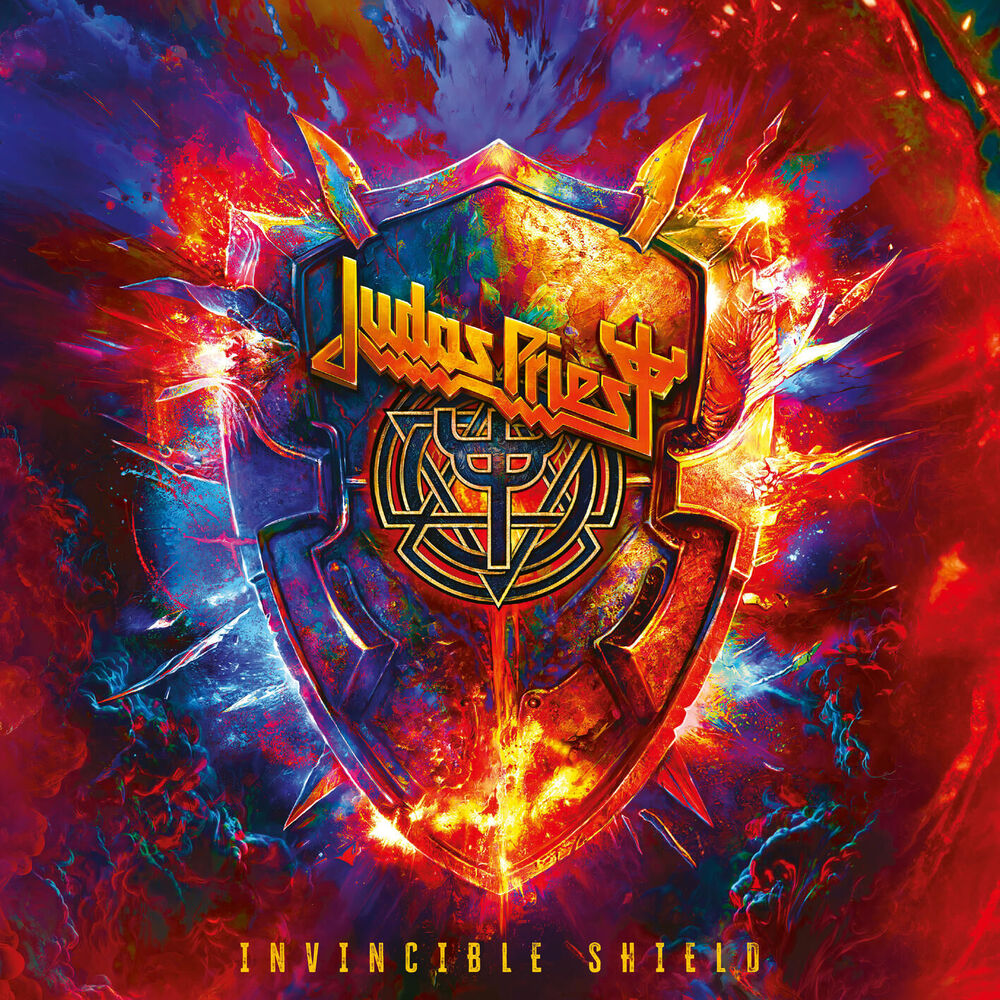 |
Country: UK
Style: Heavy Metal
Rating: 8/10
Release Date: 8 Mar 2024
Sites: Bandcamp | Facebook | Instagram | Metal Archives | Official Website | Tiktok | Twitter | Wikipedia | YouTube
This is an important album for Judas Priest, for a couple of reasons. One is that it's 2024 and their debut album, Rocka Rolla, came out in 1974, so they're being identified as the first metal band to release albums half a century apart. I guess the validity of that depends if you count someone like Deep Purple or not. The other is that, regardless of how long they've been doing this, the previous Priest album, Firepower in 2018, was seen as a high point in their career, winning a whole bunch of end of year awards. How would they follow that up?
Pretty well as it turns out. This doesn't reach the same heights, but it's still a very good album on every front, as epitomised by its opener, Panic Attack and indeed the first three opening tracks. It kicks off very well indeed and we surely can't have got past the title track without wondering if it would match its predecessor in power and impact.
Panic Attack is quintessential Priest, with solid riffs and powerful lead vocals. The guitar solos are gorgeous, one guitarist handing over to the other, then both teaming up for an absolutely joyous joint solo. I couldn't tell you which one is the work of Glenn Tipton and which Richie Faulkner, but I can't fault either of them. They both do wonderful work. Rob Halford hits all the notes he used to hit back in the day, even if, of course, he wasn't on that debut. There's also a some serious pace on Scott Travis's drums during the finalé. And that's everyone except the man who's been with them the longest, bassist Ian Hill, who joined Priest before I was born.
The title track is another highlight, adding an even more traditionally catchy chorus, something a Priest album is never short on, even on their least impactful releases. In between those two, The Serpent and the King is another excellent track. It's not quite up to its bookends but it's so strong that, had we heard it in isolation, we'd still be talking it up as an impeccable new Priest song. Any other spot on this album and it would stand out, but in between those two gems, it's just another highlight.
Devil in Disguise is where it slows down, maintaining the power but ditching the speed. Those first three tracks don't emulate something like Painkiller, but they're all notably up tempo, reminding anyone not paying attention just how much Priest had influenced the birth of speed metal and, in its wake, thrash metal. Devil in Disguise, Gates of Hell and Crown of Horns are all happy to be pure heavy metal, without any need to influence a new genre. They chug along effortlessly and exude a studded leather archetype. Much of the rest of the album follows suit.
Those are all good songs, as indeed are all the others to follow, this running to eleven tracks all told. However, it's the faster tracks that stir up my blood, which generally means those three openers and As God is My Witness, where Halford remains slower than the instruments around him but just as powerful. These faster songs are sonic weapons, while the rest of the tracks epitomise the title, obviously capable of withstanding anything thrown their way but not interested in particularly dealing out any damage of their own unless absolutely necessary.
And so whether this is as strong as Firepower may depend on what you want from a Priest track. I might love a slow Priest classic like Victim of Changes with a passion, but it's The Ripper and Electric Eye and Painkiller I'd throw on to feel invulnerable. There's not as much of that here, those four faster tracks coming closest. The majority of these are a throwback to their more commercial material, such as Breaking the Law and You've Got Another Thing Comin', but with a modern elegant edge to them. The best example here is probably Crown of Horns, a peach of a song that I'm sure the American audience will adore.
For my part, I love that song but I generally prefer those openers, so this album is wonderfully strong for me but doesn't live up to the promise it kicks off with.








